Sleep has always been a bit of a mystery. It's where we dream, recharge, and occasionally wrestle with strange noises in the dark. So, it's no surprise that sleep has inspired its fair share of superstitions. From warnings about bed direction to curious rituals involving herbs or mirrors, these tales have been passed down for generations. But how much of it is rooted in truth?
Our experts at Hudson Appliance unravel some of the quirkiest sleep superstitions—and see if science can explain why they've stuck around for so long! Whether you're a believer or just here for the fun, let's dive into the myths (and facts) that surround our nightly snooze.
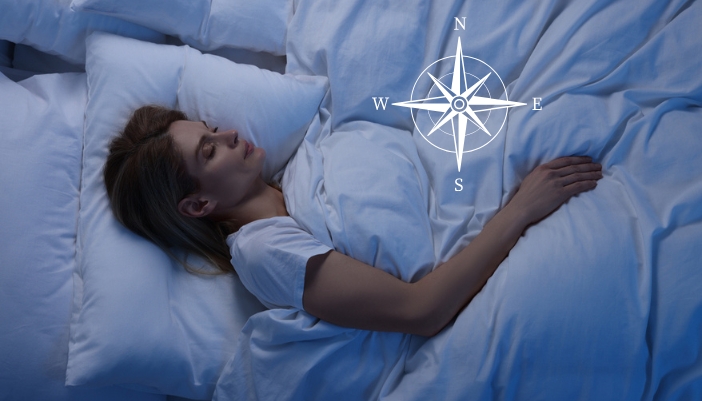
"Don't Sleep with Your Head Facing North"
Some say sleeping with your head pointing north invites bad luck or disrupts harmony. This superstition, rooted in cultural beliefs like Vastu Shastra and Feng Shui, warns of negative energy interfering with your rest. But is there any truth to it?
Science doesn't fully support the claim. While the Earth's magnetic field affects certain animals, like migratory birds, its influence on human sleep is minimal. A small study suggested that sleeping with your head to the south might improve rest, but the impact is so minor it's barely worth losing sleep.
The real key to good sleep? Forget your compass—focus on a comfy bed, a dark room, and peace. After all, the only bad direction is one that leads away from dreamland.
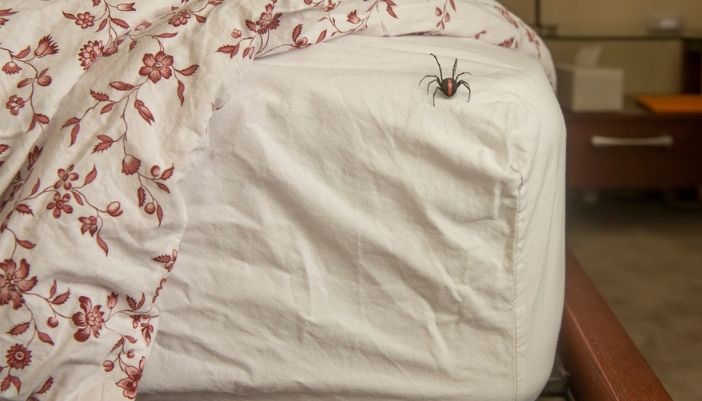
"If a Spider Crawls on You at Night, Riches Are on the Way"
This superstition likely started to make spiders seem less terrifying. Associating them with wealth and good fortune may have been an attempt to make peace with these uninvited guests. But is there any truth to this creepy-crawly connection to riches?
Spiders usually steer clear of humans, so the chances of one crawling on you at night are slim. Even if it does, science hasn't found any link between spiders and financial windfalls. That said, getting great sleep does improve focus and decision-making, which might indirectly help your bank account—or at least keep those impulse buys in check!
So, while spiders aren't likely to bring you a treasure chest, they might remind you to prioritize a clean and calming sleep environment. A good night's rest is priceless, after all.
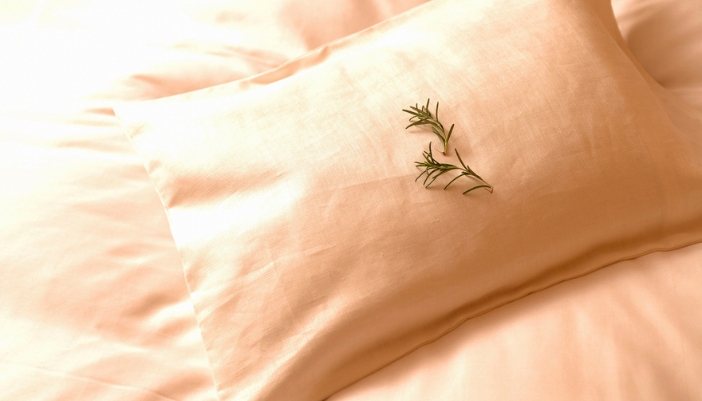
"Put Rosemary Under Your Pillow to Ward Off Nightmares"
Rosemary has long been associated with protection and purification, so it's no surprise this superstition suggests placing it under your pillow to ward off nightmares. But is there any truth to this fragrant sleep ritual?
Certain aromas, including rosemary, can influence mood and reduce stress, which might indirectly help improve sleep quality. While there's no evidence that it can block bad dreams, the soothing scent and calming bedtime ritual might be just what your busy mind needs.
Whether or not it keeps the nightmares away, rosemary can bring a sense of relaxation to your bedtime routine. And with that — a pillow that smells amazing, sweet dreams might follow.
"Waking Up on the Wrong Side of the Bed"
We've all heard the phrase: "Woke up on the wrong side of the bed." According to superstition, starting the day on the "wrong side" means you're doomed to grumpiness and lousy luck until nightfall. But where does this idea come from—and is there any truth to it?
This belief may have originated from ancient Roman times when the left side of anything was considered unlucky or even ominous. Over time, the idea morphed into the notion that rolling out of bed on the wrong (likely left) side would set a negative tone for the day. While the left side isn't cursed, the mood we wake up in does affect our day—science confirms that.
How we wake up plays a huge role in our mindset. Sleep inertia (that groggy feeling after you wake up) can linger if you're jolted awake by a loud alarm or if your sleep cycles are disrupted. Starting the day feeling irritated or rushed can carry over into everything from your commute to your coffee order. It's not about the side of the bed; it's about your routine and mindset.
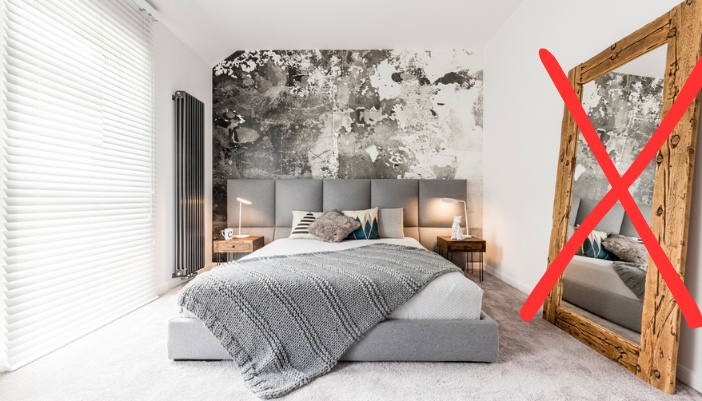
"Cover Mirrors at Night to Protect Your Soul"
Some believe leaving mirrors uncovered at night can trap your soul or invite bad energy while you sleep. This superstition has roots in many cultures, often tied to the idea that mirrors are portals or that reflections can capture pieces of the soul. But does this eerie belief hold any weight, or is it just another spooky tale?
While there's no evidence that mirrors can interfere with your soul, they can play tricks on your mind. Reflections and shadows in low light can easily trigger feelings of unease, especially if you're prone to nighttime anxiety or sleep disruptions. For some, a mirror positioned near the bed can create the unsettling sensation of being watched, which certainly doesn't help you relax!
Psychologically, room aesthetics do matter for sleep. A clutter-free, calming environment helps signal your brain that it's time to rest, and if a covered mirror eases your mind, it's a simple fix worth trying. Sometimes, it's more about what makes you feel safe and comfortable than the science behind it.
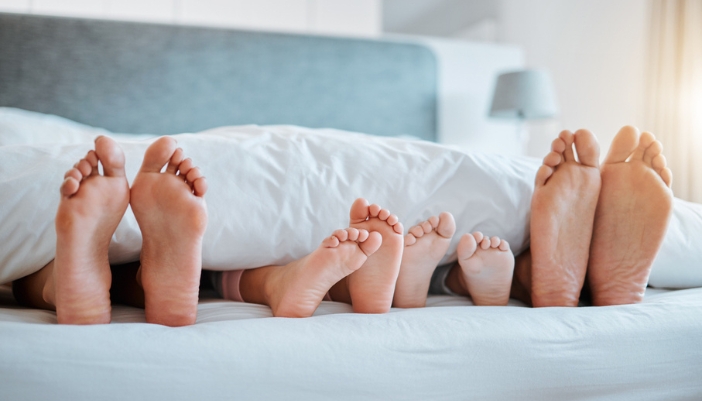
"Never Sleep with Your Feet Facing the Door"
In many cultures, sleeping with your feet facing the door is considered bad luck—or even an invitation to death. Often referred to as the "coffin position," this belief stems from the practice of carrying the deceased feet-first out of a room. While it's a chilling idea, does it have any bearing on how well you sleep?
From a practical perspective, the superstition makes sense in a different way. Sleeping with your feet directly facing the door can create a subconscious feeling of vulnerability. If you can see the door but your back is exposed, it may make you uneasy, as humans are naturally wired to seek secure, safe environments for rest. Feng Shui takes this idea further, claiming that aligning your feet with the door allows energy (or chi) to escape, disrupting your sleep.
While there's no hard science about feet-to-door sleeping positions, studies show that feeling secure in your sleeping space—whether that's where your bed is placed or the lighting in your room—improves relaxation. If this superstition makes you rethink your room layout, you might find it's an excellent excuse to create a more comforting setup.
Tucking in the Tales
Sleep superstitions reflect our long-standing fascination with the unknown, from spiders to rosemary. While most of these tales don't hold up to scientific scrutiny, they hint at deeper truths about how we think and feel about rest. Whether it's creating a sense of safety, finding comfort in rituals, or just having a good laugh, these stories remind us how personal—and powerful—our sleep routines can be.
Of course, the foundation of great sleep is a mattress that supports you—superstitions or not! If you have questions about finding the perfect mattress, give us a call or explore our selection online. Our experts at Hudson Appliance are here to help make every night feel like a dream.